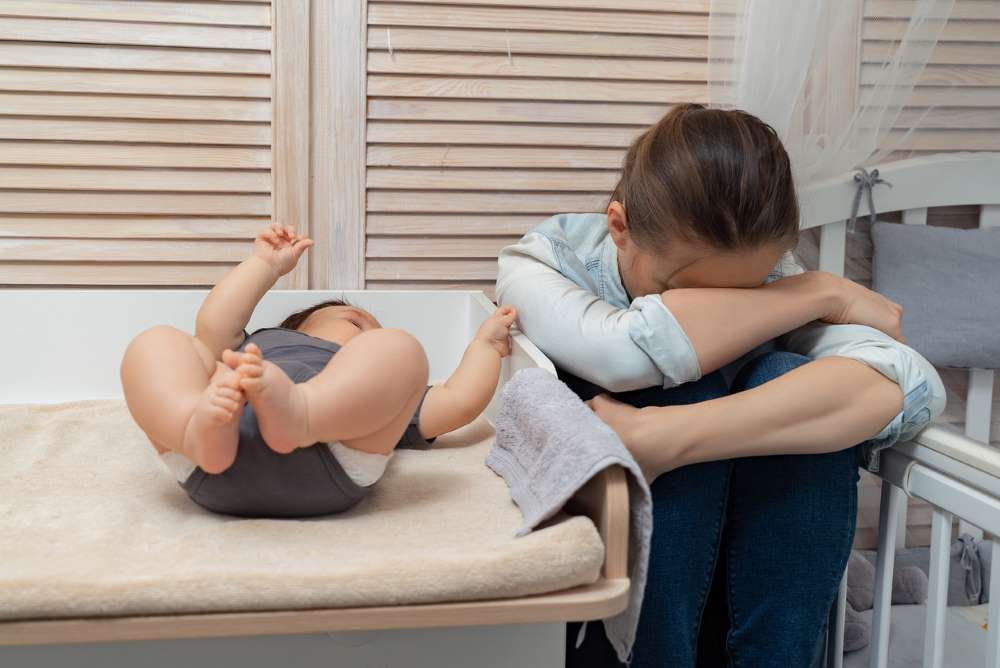
Studies show that postpartum depression affects 14% of women in the year after giving birth. However, experts believe PPD is much more common than statistics reveal because many women never receive diagnosis or treatment. This statistic doesn’t account for women who miscarry or have stillbirths, either. Subsequently, there could be at least twice as many cases of PPD than what is being reported.
What is PPD?
Postpartum depression is a complex mix of emotional, physical and behavioral changes that frequently occur in new mothers. This mental illness can present itself in a number of ways. However, symptoms often include intense mood swings, anxiety, loss of appetite, tearfulness, lack of motivation and irregular sleep patterns. PPD can also cause some mothers to feel worthless, hopeless and detached from their newborn. Previous bouts of PPD, severe premenstrual syndrome, depression and various other factors can put some women at a higher risk of developing PPD.
Supporting Your Loved Ones
If you know a friend or family struggling with PPD, you might feel unqualified to help them. However, there are a number of things you can do to support your loved ones during this challenging time.
1. Be a Good Listener
As with any other mental illness, talking through your thoughts and feelings can aid in alleviating symptoms. Therefore, if you know a new mom who needs to get a few things off her chest, let her vent and practice being a good listener.
Maybe they’re feeling sad, worried, guilty or even angry. Don’t discount these feelings or react with judgment. Simply listen and empathize with her as best you can. Even if you don’t have any advice, being a shoulder to cry on or a listening ear can be enough to help them heal and recover.
2. Avoid Making Comparisons
Because moms suffering from PPD may struggle with feeling empty, irritable and inadequate, it’s important to avoid comparing your experience to theirs. Even if you, too, suffered from PPD after giving birth, offering advice might make them feel like they’ll never be as good a mother as you. By comparing your situations, you’ll only amplify their guilt and shame. Therefore, it’s best to listen quietly, express empathy and remind her that all she can do is do her best.
3. Offer a Helping Hand
Another way to support postpartum mothers is to find specific things you can do to lend a helping hand. Instead of telling them to let you know when they need help, make a plan to watch her baby so she can nap. Surprise her with a homemade meal or do the grocery shopping so she doesn’t have to. Offering to do these things and then following through will relieve her from figuring out what kind of help needs even when she isn’t sure.
4. Remind Her PPD is Temporary
Mothers who struggle with PPD might feel as if their symptoms will last forever. However, most women only experience PPD for the first six months after the baby’s birth. Therefore, reminding your loved one that their battle is temporary may be an excellent way to comfort and encourage them. Tell her that her symptoms don’t define her and that she can and will form a strong bond with her baby. It might just take a bit longer than she’d have hoped.
5. Encourage Her to Seek Help
Just because PPD is temporary doesn’t mean new moms shouldn’t seek treatment. In fact, many moms may recover quicker if they consult a doctor or therapist early on. Meanwhile, those who don’t receive help could experience more serious symptoms or develop additional disorders like postpartum psychosis.
Therefore, if you notice the warning signs of PPD before she does, encourage her to seek help. Research mommy support groups and therapists in her community and offer to go to doctor’s appointments or meetings with her. Even if she prefers to go alone, she’ll likely appreciate the gesture.
6. Support Her Decisions
If your loved one does decide to get help, support whatever choices she makes with her doctors. In some cases, that might mean backing her decision to take prescription medication. Of course, her doing so could interfere with breastfeeding, but this is no time to insert your convictions about nursing or bottle feeding. Instead, applaud her initiative and offer to be an accountability partner to ensure she’s taking her medication every day.
Finding Support for Yourself
Husbands, close relatives and best friends might provide significant emotional and physical support to moms suffering from PPD. Eventually, daily interactions and constantly looking out for her may cause you to burn out, too. In this case, it’s important to find someone to support you. Because new moms won’t have the capacity to reciprocate the same level of support, you’ll have to look elsewhere.
Find a friend, family member or therapist whom you can trust and vent to them as often as necessary. Releasing your thoughts and emotions will help you maintain mental stability so you can continue to be there for your favorite new mama.



























